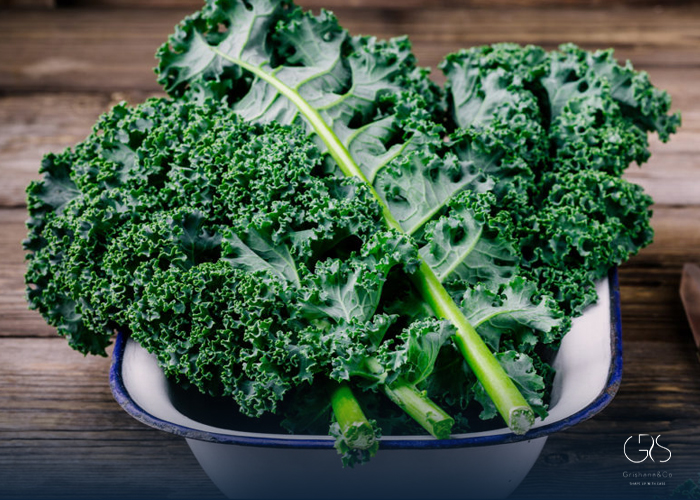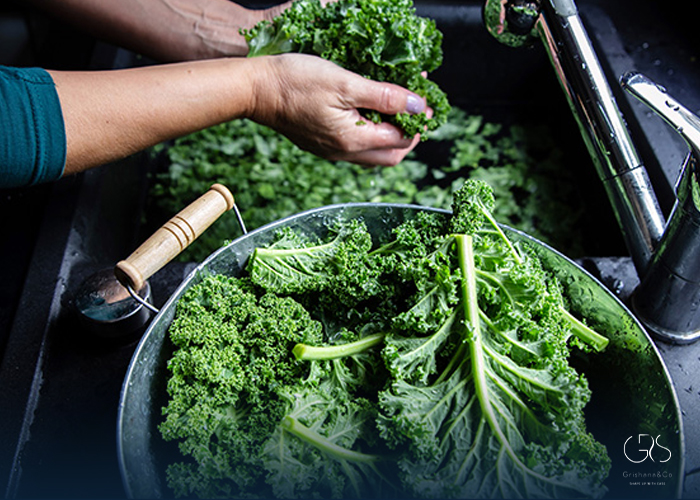Kale, a green leafy vegetable, has gained immense popularity for its exceptional nutritional profile and potential health benefits. Not only is kale low in calories, but it also contains an impressive array of vitamins, minerals, and antioxidants. In this article, we will explore the various health benefits of kale, including its potential to reduce the risk of macular degeneration, support heart health, reduce the risk of certain cancers, promote bone health, and enhance gut health. Additionally, we will provide an overview of kale’s nutritional facts and address potential risks associated with its consumption.
May Reduce Macular Degeneration Risk
Macular degeneration is a leading cause of vision loss, particularly in older adults. Kale is rich in lutein and zeaxanthin, two antioxidants that are known to accumulate in the retina and have been associated with a reduced risk of macular degeneration. A study published in JAMA Ophthalmology found a significant association between high lutein and zeaxanthin intake and a decreased risk of advanced age-related macular degeneration (AREDS, 2019).
May Support Heart Health
Heart disease is a major health concern globally, and incorporating heart-healthy foods into your diet can play a crucial role in preventing its onset. Kale is packed with nutrients like fiber, potassium, and antioxidants that have been linked to a reduced risk of heart disease. A study published in the International Journal of Clinical Nutrition highlighted the potential protective effects of kale and other leafy green vegetables against heart disease (Leech, 2018).

May Reduce the Risk of Certain Cancers
Cruciferous vegetables, including kale, have been extensively studied for their cancer-fighting properties. The high content of glucosinolates in kale is believed to play a role in reducing the risk of certain cancers, including colorectal, lung, and breast cancer. A meta-analysis of several studies demonstrated a significant association between cruciferous vegetable consumption and a reduced risk of colorectal cancer (Higdon, Drake, & Delage, 2020). However, further research is needed to establish the precise mechanisms behind these effects.
May Support Bone Health
Kale is an excellent source of vitamin K, which is essential for bone health and blood clotting. Consuming adequate amounts of vitamin K from green leafy vegetables, like kale, is associated with a decreased risk of fractures, particularly in older adults. A study published in the Journal of Nutrition found that individuals with higher vitamin K intake had a lower risk of hip fractures (Booth et al., 2016).

May Support Gut Health
The fiber content in kale promotes healthy digestion and supports gut health. It aids in maintaining regular bowel movements, preventing constipation, and contributes to a healthy balance of gut bacteria. Additionally, kale contains beneficial compounds, such as glucosinolates, which may have a protective effect against certain digestive disorders, including colorectal cancer (Fernandez-Raudales et al., 2019).
Kale Nutritional Facts
Kale is not only a health powerhouse, but it is also incredibly low in calories. A single cup of raw kale contains approximately:
- Calories: 7
- Carbohydrates: 1g
- Fiber: 1g
- Vitamin K: 493mcg (68% of the DV)
- Vitamin C: 21mg (22% of the DV)
- Manganese: 0.64mg (8% of the DV)
- Vitamin A: 172mcg (6% of the DV)
- Riboflavin: 0.17mcg (5% of the DV)
- Calcium: 177mg (4% of the DV)

Risks of Eating Kale
While kale offers numerous health benefits, it is essential to consider potential risks associated with its consumption. Kale is a member of the cruciferous vegetable family, which contains compounds known as goitrogens. These substances may interfere with thyroid function, particularly in individuals with pre-existing thyroid conditions. It is advised to moderate kale consumption or consult with a healthcare professional if you have thyroid issues (Fernandez-Raudales et al., 2019).
(I suggest that you read more about Thyroid Health Foods in my article.)
Conclusion
Kale is undoubtedly a nutritional powerhouse that offers a wide range of health benefits. Its potential to reduce the risk of macular degeneration, support heart health, reduce the risk of certain cancers, promote bone health, and enhance gut health cannot be overlooked. Incorporating kale into your diet can be a simple yet effective way to improve overall health and well-being. However, it is essential to consider individual circumstances and consult with a healthcare professional to ensure it aligns with personal health goals.
Sources
- Healthline, 9 Health Benefits of Kale
- USDA, Kale, raw











